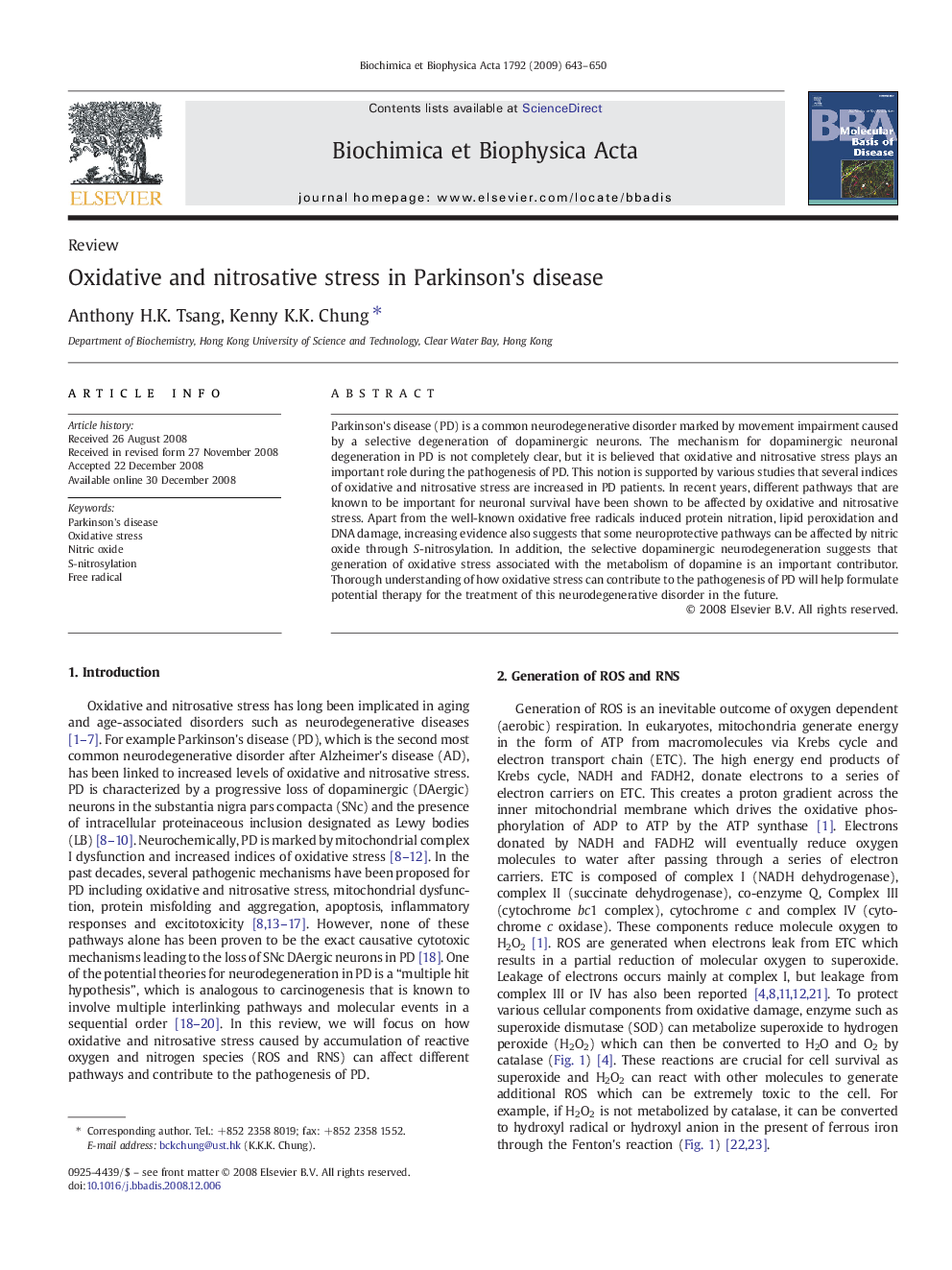| Article ID | Journal | Published Year | Pages | File Type |
|---|---|---|---|---|
| 1905475 | Biochimica et Biophysica Acta (BBA) - Molecular Basis of Disease | 2009 | 8 Pages |
Parkinson's disease (PD) is a common neurodegenerative disorder marked by movement impairment caused by a selective degeneration of dopaminergic neurons. The mechanism for dopaminergic neuronal degeneration in PD is not completely clear, but it is believed that oxidative and nitrosative stress plays an important role during the pathogenesis of PD. This notion is supported by various studies that several indices of oxidative and nitrosative stress are increased in PD patients. In recent years, different pathways that are known to be important for neuronal survival have been shown to be affected by oxidative and nitrosative stress. Apart from the well-known oxidative free radicals induced protein nitration, lipid peroxidation and DNA damage, increasing evidence also suggests that some neuroprotective pathways can be affected by nitric oxide through S-nitrosylation. In addition, the selective dopaminergic neurodegeneration suggests that generation of oxidative stress associated with the metabolism of dopamine is an important contributor. Thorough understanding of how oxidative stress can contribute to the pathogenesis of PD will help formulate potential therapy for the treatment of this neurodegenerative disorder in the future.
